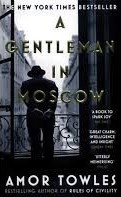
Elegance. Charm. Intelligence. Wit. Such words inhabit the reviews of A Gentleman in Moscow. They apply as much to its central character, Count Alexander Rostov, as to the novel itself. A truly appropriate book to mark the halfway point on Russia in Fiction’s path to 100 reviews.
The central premise of A Gentleman in Moscow is original and intriguing. Count Rostov, a rich young Russian aristocrat, is arrested in Moscow in 1922 as the Communist regime —whose Red Army has just secured Bolshevik hegemony in Russia’s vicious civil war— brings its class warfare to bear on the citizens of the new Soviet state. His guilt assured by his aristocratic status, the Count is sentenced to house arrest. He must remain indefinitely in his place of abode. That place happens to be Moscow’s grandest hotel, the Metropol.
As the proceedings of Rostov’s brief trial state, ‘should you ever set foot outside of the Metropol again, you will be shot.’
The story that then unfolds, over nearly 500 pages, takes place within the walls of this magnificent hotel, situated in central Moscow just across the way from the Bolshoi Theatre and a short walk from the Kremlin, Red Square, and Tverskaya Street.
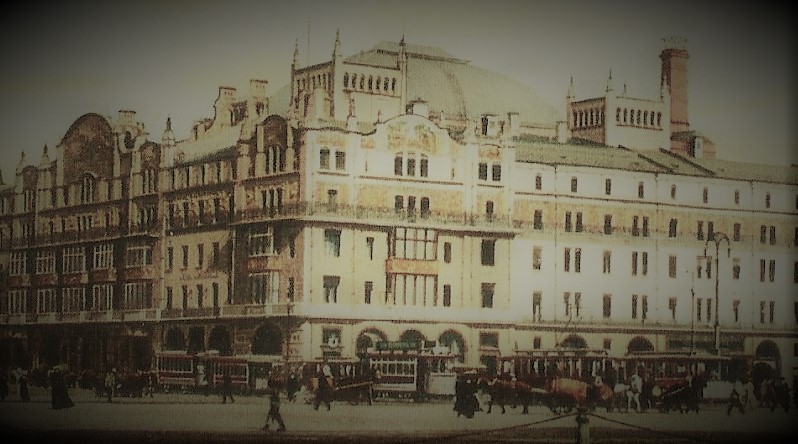
The novel’s spatial confines are to some degree compensated for by its temporal spread, reaching across more than three decades.
And what decades! As Count Rostov resides in the Hotel Metropol, Soviet history unfolds apace; the NEP years, the rise of Stalin, industrialisation, collectivisation, the growth of the Gulag, the successes of the first Five Year Plan, the famine in Ukraine, the Great Terror, Nazi forces advancing to within sight of the Kremlin’s golden domes, eventual Soviet victory in the Great Patriotic War, the death of Stalin. All of these form the backdrop to Towles’s novel. Many of them play a role in its narrative, and are of course of interest in terms of how Russia is portrayed in fiction.
At the same time, it is the strength of A Gentleman in Moscow that to describe its setting is not the same as to say what it is about. And to say what it is about is not the same as to explain its essential potency.
A Gentleman in Moscow is about human relationships, and its essential potency lies in its author’s ability as a wordsmith, adept at delightful dialogue and dextrous in dealing with grand themes and telling detail alike. Fennel and saffron stand for the importance of maintaining flavour, correctness, and occasional indulgence in lives besieged by change.
Whilst the Bolsheviks’ class warfare is responsible for Count Rostov’s confinement, the way that Towles addresses the question of class is subtle. No clunking declarations and generalisations here, but rather a more elevated stance that downplays the identity of class and in doing so underscores higher common values of love and loyalty, laughter and learning, and shared endeavour. The Count, the chef, and the concierge combine their skills and labour.
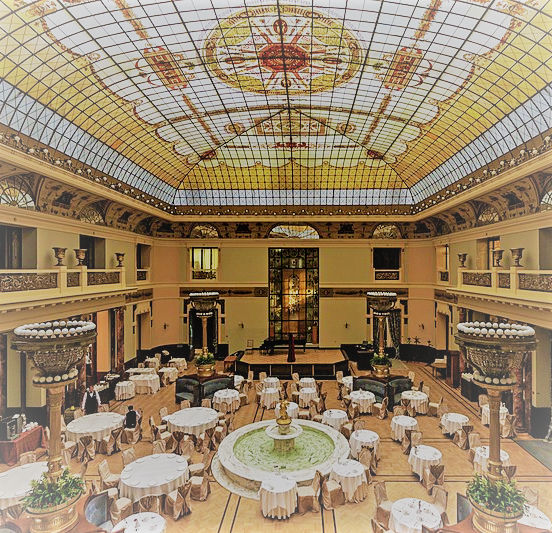
What Towles draws in miniature is an alternative Russian history within the walls of the Hotel Metropol, where nobility and peasant and bourgeoisie and worker serve together, where European literature and philosophy are freely discussed, and where established modes of conduct and comportment exert harmonious hold on this society. It is an alternate early 20th century Russia in microcosm. What might life have been like without Lenin and Stalin, without the thuggish secret police, without the amoral ideology, and without the fetishisation of a new order that sweeps away all in its path?
But hey, let’s not make this novel sound heavier than it is. Whilst these deeper themes come to mind when sitting back some time after having read A Gentleman in Moscow and cogitating on what it is all about, Russia in Fiction wants also to remember —and emphasise— the delight to be had whilst reading it.
Chapter by chapter, character by character, decade by decade, the reader roams around the hotel, in its restaurants and ballrooms, up and down its grand staircases, in its back offices and kitchens, through its suites and its pokey servant quarters, along its hidden passages and into its secret rooms. In the always engaging, witty, and learned company of Count Rostov and his companions and comrades, we eat the best that can be conjured from the provisions available in the early Soviet decades, we dance, we converse, we plot and scheme, we play jokes. And we love.
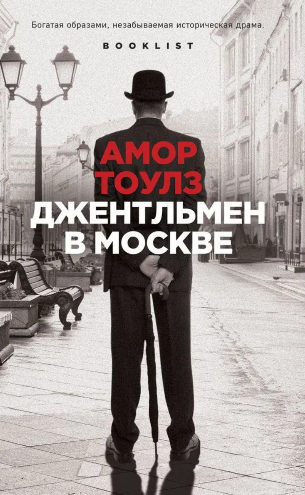
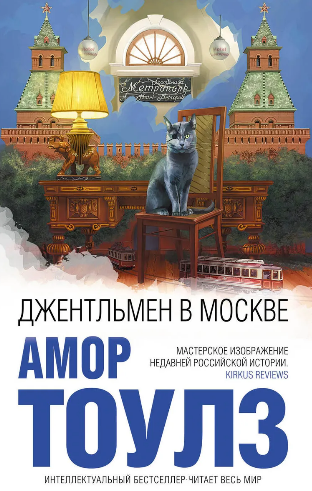
There are many characters that stay in the mind. The senior secret police officer who dines often with Count Rostov to discuss ideas and art and Marxism Leninism. The triumvirate —of which the Count is one— who oversee the hotel’s dining experience through the exigencies of the Stalin years; and incidentally stand in contrast to the Bolshevik troika, whose perfunctory proceedings, presented in the preface, sentenced Rostov to his confinement in the first place.
And of course Sofia.
Entrusted to the Count as a young child when her father is arrested and sent to the Gulag labour camps in Siberia, Sofia becomes his daughter. He brings her up, and it is this relationship which provides shape and purpose to A Gentleman in Moscow. Without Sofia there would be a danger that the novel might consist only of delightful vignettes. Instead, her presence drives us to a moving and satisfying denouement.
What a wonderful, multi-layered, and literary novel A Gentleman in Moscow is. To read it is to spend time in the company not only of a man of erudition and sympathetic generosity, but also of his friends across the decades and from disparate backgrounds. What Russia in Fiction took most of all from this beautiful book was the reminder that whatever external circumstances may befall people, good hearts can meet in common endeavour and understanding to shape lives well lived.